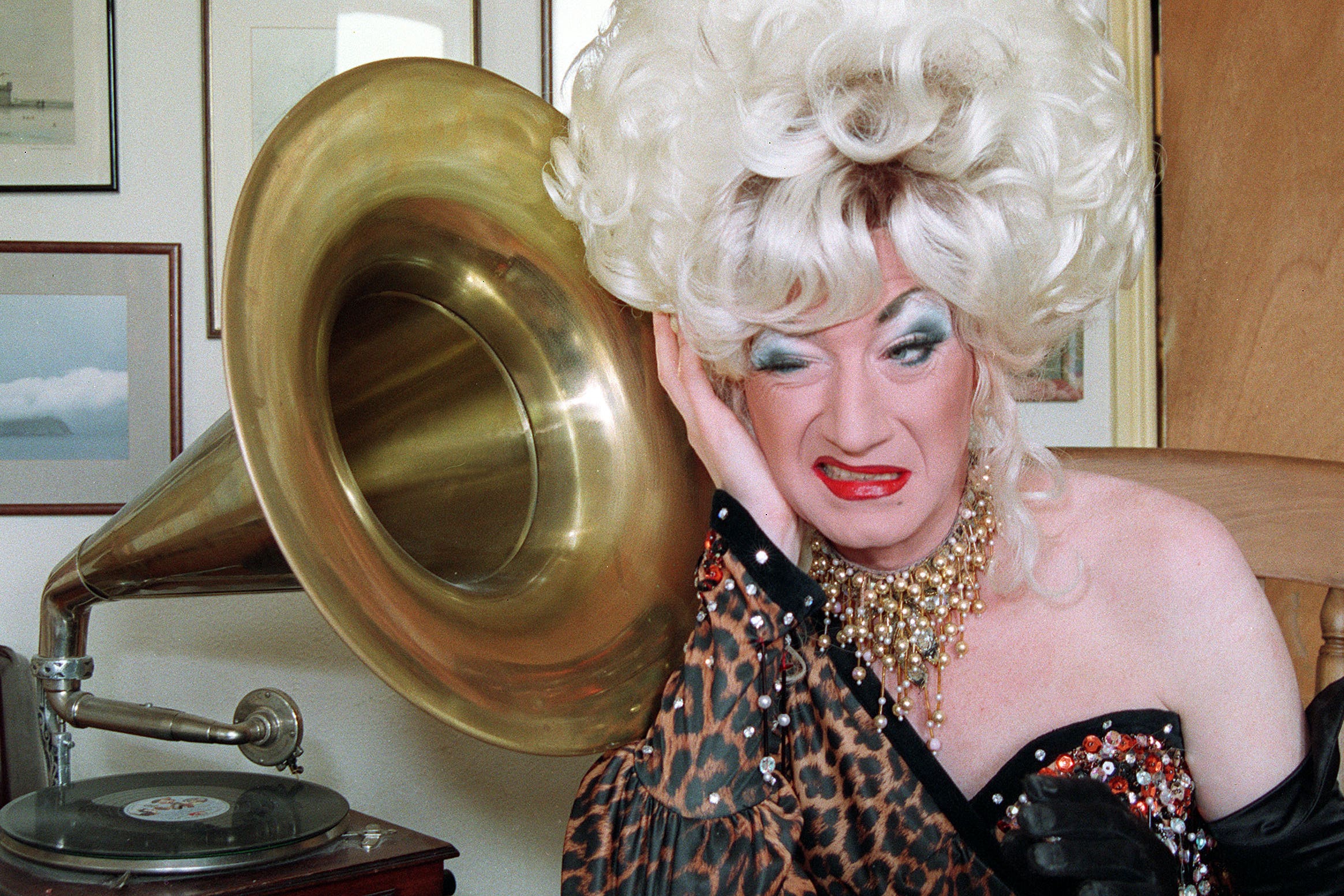What Paul O’Grady meant for LGBTQ+ representation
As the country mourns national treasure and drag icon Paul O’Grady, Imy Brighty-Potts asks LGBTQ+ people what he meant to the community.

Your support helps us to tell the story
From reproductive rights to climate change to Big Tech, The Independent is on the ground when the story is developing. Whether it's investigating the financials of Elon Musk's pro-Trump PAC or producing our latest documentary, 'The A Word', which shines a light on the American women fighting for reproductive rights, we know how important it is to parse out the facts from the messaging.
At such a critical moment in US history, we need reporters on the ground. Your donation allows us to keep sending journalists to speak to both sides of the story.
The Independent is trusted by Americans across the entire political spectrum. And unlike many other quality news outlets, we choose not to lock Americans out of our reporting and analysis with paywalls. We believe quality journalism should be available to everyone, paid for by those who can afford it.
Your support makes all the difference.Drag queen, activist, TV presenter and comedian Paul O’Grady has died at the age of 67, his partner Andre Portasio has said.
O’Grady, known for his drag queen persona Lily Savage, died “unexpectedly but peacefully” on Tuesday evening, a statement shared with the PA news agency via a representative said.
Known most recently for his emotive show with Battersea Dogs and Cats Home, Paul O’Grady: For the Love of Dogs and presenting Blind Date and Blankety Blank, he was a trailblazing presenter and comic.
Representing on screen
O’Grady was one of the most openly LGBTQ+ celebs on screens for a long time, both in and out of drag. He debuted Lily Savage in the 1970s, rising to fame in the 1980s, and performing in drag on The Big Breakfast in the 1990s and many other mainstream shows.
“Paul was a dreamboat. He was one of those people that obviously had incredible fame in the 1990s and as a young out, queer person to reflect our culture on TV in that period was amazing to see,” said Nathaniel J Hall, It’s A Sin actor and HIV activist.
Performing for a good cause
He put his heart, and work, into supporting the community during the HIV epidemic.
Hall added: “What a lot of people don’t know is that Paul was performing regularly at the Royal Vauxhall Tavern [a gay pub in South London] behind the scenes to the home crowd and was really instrumental in using his celebrity to raise money for HIV causes.”
His championing of Battersea Dogs and Cats home garnered much attention over recent years, with his ITV show raising the profile of animal adoption in the UK.
Challenging institutions and removing the stigma
O’Grady notoriously handled a 1987 police raid on the Royal Vauxhall Tavern.
“Paul was preparing for his performance as Lily Savage and adjusting his wig. Suddenly, the police burst into his dressing room,” said LGBTQ+ rights campaigner Peter Tatchell.
“At first, he thought they were strippers and were part of the show. He said the officers were rude and aggressive. When Paul came out on stage, the police were all wearing rubber gloves and manhandling the gay customers and staff.
“This was at the height of the Aids panic and hysteria. The police thought you could get HIV by touching a gay person. Hence the rubber gloves.
“Referring to those gloves, Paul quipped to the officers: ‘Oh good, have you come to do the washing up?’
“There was pandemonium as the police marauded through the pub. People were scared. Paul wanted a police apology but never got one.”
According to Tatchell, O’Grady was scheduled to lead an upcoming campaign by the Peter Tatchell Foundation before he died, for the police to apologise for their past persecution of the LGBT+ community.
“Even after the partial decriminalisation of homosexuality in 1967, thousands of gay and bisexual men were arrested for consenting, victimless behaviour in malicious, vindictive raids,” he said. “That was so wrong and Paul was angry that they’d never said sorry.
Inspiring activism
O’Grady’s challenging of HIV stigma and his loud voice about causes he believed in encouraged activists like Hall now.
The actor said: “People like Paul inspire me on those days where it feels hard, when it feels like we are regressing, when the trans community is being persecuted and when gay hate crimes are growing.
“It feels like crime against the community is ramping up, people like Paul remind me how important it is to be visible and unapologetic, to be Scouse, to be working class, to say it as it is. That is why he was so loved by so many people.”